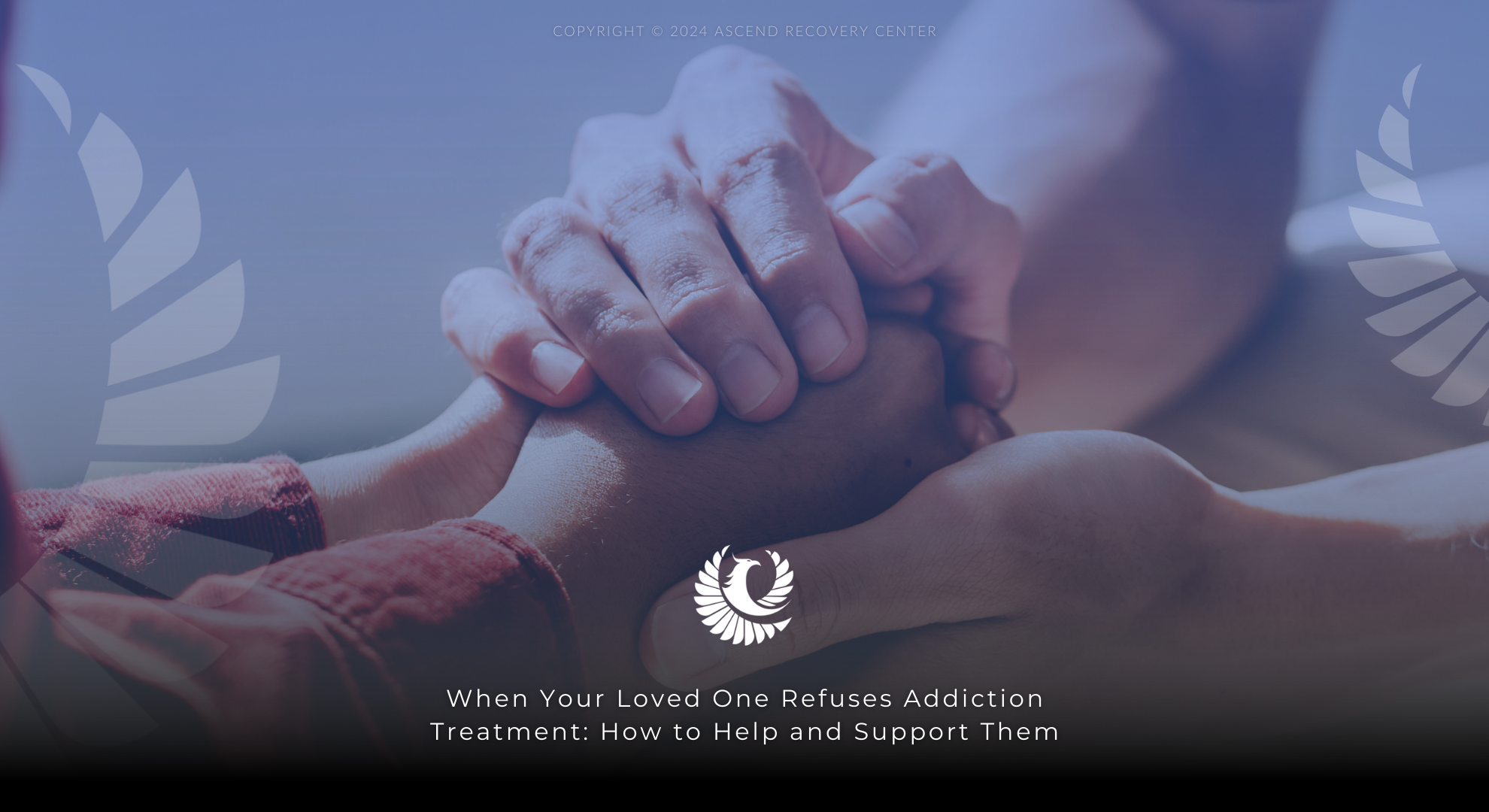As you witness your loved one battle addiction, it’s natural to want to intervene and guide them toward treatment. However, it can be disheartening when a loved one refuses addiction treatment. Understanding the reasons behind their resistance is crucial in finding effective ways to support and encourage them on their journey to recovery. In this comprehensive guide, we will explore the common reasons why addicts refuse treatment and provide actionable steps you can take to help your loved one.
Understanding the Reasons Behind Refusal
Denial: The Barrier to Acceptance
Denial is a powerful force that often prevents individuals from recognizing and acknowledging their addiction. Many addicts genuinely believe they don’t have a problem and can quit anytime they want. Breaking through this barrier requires patience, understanding, and education.
Fear of Detox: Overcoming the Unknown
One common reason why addicts refuse treatment is the fear of detox. They may have misconceptions about the discomfort and challenges associated with the process. Educating yourself about the reality of detox and the supportive environment provided by treatment facilities can help address these fears.
Resistance to Change: Navigating the Unknown
Change can be intimidating for anyone, and addicts are no exception. They may fear losing their social circle or worry about starting over in life. Addressing these concerns and emphasizing the positive aspects of recovery can help alleviate their resistance to change.
Fear of Failure: Encouraging a Positive Mindset
The fear of failure often looms over individuals struggling with addiction. They may believe that recovery is futile, as relapses are common. It’s essential to emphasize that every attempt at overcoming addiction is a step in the right direction and should be celebrated.
Fear of Vulnerability: Encouraging Emotional Growth
Addiction is often a shield that individuals use to avoid confronting their emotions. The prospect of vulnerability in therapy and counseling can be daunting. Assure your loved one that opening up and addressing their thoughts and feelings is a courageous and transformative act.
Desire to Continue Using: Addressing Coping Mechanisms
Addiction can serve as a coping mechanism for underlying issues such as unemployment, abuse, or relationship troubles. Understanding the root causes of their substance abuse and providing alternative coping strategies can help shift their perspective toward seeking treatment.
Fear of Judgment: Creating a Supportive Environment
The fear of being judged or gossiped about can be a significant deterrent for individuals seeking addiction treatment. By creating a supportive and non-judgmental environment, you can encourage your loved one to prioritize their well-being over external perceptions.
Strategies to Help Your Loved One
Educate Yourself: Empowering Support through Knowledge
Take the time to educate yourself about addiction, treatment options, and the recovery process. Understanding the challenges your loved one faces can help you provide informed support and guidance.
Identify the Stage of Addiction: Tailoring Your Approach
Recognize the stage of addiction your loved one is in to determine the most effective approach. By assessing their situation objectively, you can tailor your conversations and interventions accordingly.
Start with a Medical Approach: Seek Professional Guidance
Suggest or schedule a routine check-up appointment with a healthcare professional. By informing the doctor about your loved one’s addiction, they can provide a comprehensive assessment and offer recommendations for treatment.
Offer Unconditional Support: Be Their Pillar of Strength
Let your loved one know that you are there for them, no matter what. Express your concern, but avoid judgment or confrontation. By showing unwavering support, you create a safe space for them to open up and consider treatment.
Set Boundaries and Avoid Enabling: Encourage Accountability
Establish clear boundaries and avoid enabling behaviors that support their addiction. By refusing to provide financial assistance, cover up their actions, or make excuses for their behavior, you encourage personal accountability.
Consider an Intervention: Seeking Professional Guidance
In some cases, a professionally guided intervention may be necessary to encourage your loved one to seek treatment. An intervention brings together family and friends to express their concerns and provide a united front of support.
Seek Help for Yourself: Prioritize Self-Care
Caring for a loved one struggling with addiction can take a toll on your mental and emotional well-being. Prioritize self-care by attending support groups like Al-Anon or Narc-Anon, seeking individual therapy, and learning about addiction to better understand your loved one’s experiences.
The Importance of Early Intervention
Early intervention is crucial in preventing addiction from spiraling out of control. By recognizing the signs and addressing the issue promptly, you increase the likelihood of a successful recovery. Seek professional help from Ascend Recovery Centers, which offer comprehensive care and family support in New Mexico, Florida, and North Carolina.
Remember, recovery is a personal journey, and your loved one must ultimately make the decision to seek treatment. By providing education, support, and setting boundaries, you create a conducive environment for them to make that choice. Stay patient, understanding, and empathetic throughout the process, and have faith that your unwavering support can make a difference in their lives.








